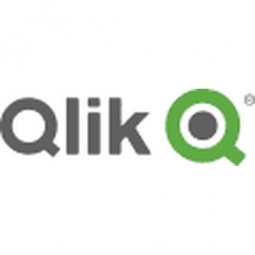Download PDF
Gemeente Haarlem Drives Performance Monitoring with QlikView
Technology Category
- Analytics & Modeling - Real Time Analytics
Applicable Industries
- Cities & Municipalities
Services
- System Integration
- Training
The Challenge
Gemeente Haarlem, a city council in the Netherlands, was under pressure to reduce costs and improve performance management while also introducing new service delivery models to boost efficiency. The council had adopted a business lead approach to performance management and was working towards developing a shared services strategy for ICT, and other areas, such as finance and HR, between its different departments. ICT formerly operated semi autonomously using disparate data sources and had accumulated more than 100 million records. A principal driver for the change programme was to embed a performance management culture throughout the organisation and transform the delivery of public services. Cost effective, easy to use, business intelligence (BI) technology emerged as a vital tool for achieving success with the change agenda in the long term.
About The Customer
Gemeente Haarlem is a city council in the Netherlands with 1,200 employees serving a population of 150,000. It is the capital of the province covering the northern half of the Netherlands where besides Gemeente Haarlem major cities, such as Amsterdam. Alkmaar, and Den Helder, are located. As one of the top 10 local authorities in the country, Gemeente Haarlem is a trail blazer in the provision of cost effective citizen centric services enabled by ICT. In the current climate of public sector spending restraint, the council has been under pressure to reduce costs and improve performance management while also introducing new service delivery models to boost efficiency.
The Solution
Gemeente Haarlem initially deployed QlikView 8.0 in 2008 upgrading to QlikView Enterprise Server 9.0 in 2010 with 100 daily users and 150 document users. Following the success of QlikView with initial reports for HR and later on with the financial reports, the council engaged QlikTech Elite Partner The Implementation Group for a “Seeing is Believing” demonstration using the authority’s own data sources for the primary processes. By 2009, management wanted to extend the use of QlikView to the core public facing services of the council to achieve new efficiency savings and a reduced burden on the ICT department. This involved getting buy in from a range of departmental stakeholders including, for example, social security benefits entitlements, car parking enforcement, passports issuance and renewals, citizen complaints, and help desk monitoring. For example, with the citizen complaints QlikView is used to analyse what percentage of complaints are responded to within agreed normal times and picks up any exceptions.
Operational Impact
Quantitative Benefit
Related Case Studies.

Case Study
Turning A Stadium Into A Smart Building
Honeywell created what it called the “intelligent system” for the National Stadium in Beijing, China, turning the venue for the opening and closing events at the 2008 Summer Olympics into a “smart building.” Designed by highly controversial artist Ai Weiwei, the “Bird’s Nest” remains one of the most impressive feats of stadium architecture in the world. The 250,000 square meter structure housed more than 100,000 athletes and spectators at a time. To accommodate such capacity, China turned to Honeywell’s EBI Integrated Building Management System to create an integrated “intelligent system” for improved building security, safety and energy efficiency.
.png)
Case Study
Smart Street Light Network (Copenhagen)
Key stakeholders are taking a comprehensive approach to rethinking smart city innovation. City leaders have collaborated through partnerships involving government, research institutions and solution providers. The Copenhagen Solutions Lab is one of the leading organizations at the forefront of this movement. By bringing together manufacturers with municipal buyers, the Copenhagen Solutions Lab has catalyzed the development and deployment of next-generation smart city innovations. Copenhagen is leveraging this unique approach to accelerate the implementation of smart city solutions. One of the primary focus areas is LED street lighting.

Case Study
Buoy Status Monitoring with LoRa
The Netherlands are well-known for their inland waterways, canals, sluices and of course port activities. The Dutch Ministry of Infrastructure indicates that there are thousands of buoys and fixed items in and near water environments that would profit from IoT monitoring. One of the problems with buoys for example, is that they get hit by ships and the anchor cable breaks. Without connectivity, it takes quite some time to find out that something has happened with that buoy. Not to mention the costs of renting a boat to go to the buoy to fix it. Another important issue, is that there is no real-time monitoring of the buoys at this moment. Only by physically visiting the object on the water, one gains insight in its status.

Case Study
China Mobile Smart Parking
Smart Parking, powered by NB-IoT technology, is making it easier for drivers to find free parking spots. Cities can better manage their parking assets and maximize the revenue available to them as a result. Drivers searching for parking create congestion and pollution by circling and hunting for available parking. Smart Parking services are able to significantly ease these problems by guiding a driver directly to a parking space.

Case Study
Barcelona Case Study
Barcelona’s heavy traffic and its associated high levels of pollution were the primary factors that motivated some companies and universities to work on strategies for improving traffic in the city centre. Bitcarrier is one of the technologies involved in the In4Mo Project, whose main objective is to develop the applications that form the core of smart mobility, one of the fundamental pillars of the smart city concept.






